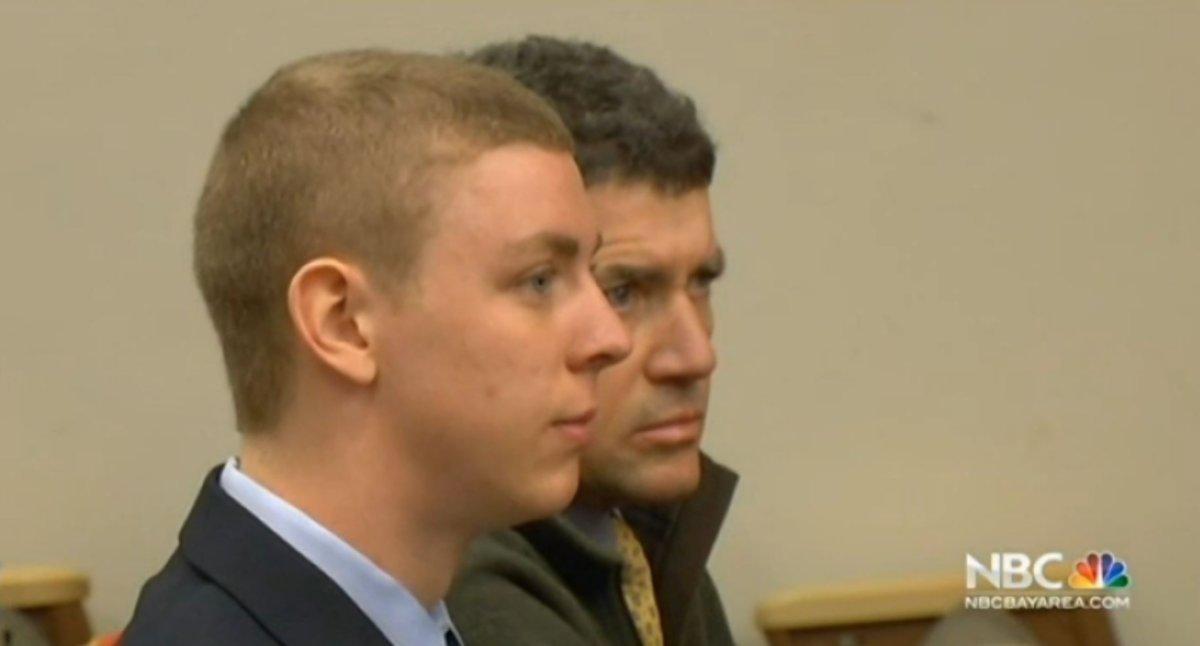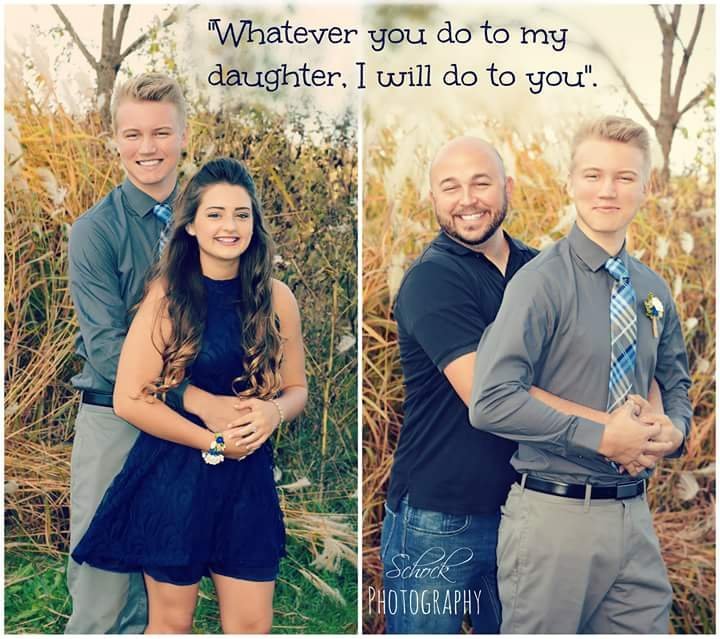When I was 19, I made the terrible mistake of drinking too much on a Vegas excursion. My friends and I were staying in the same hotel suite with two male friends of ours. I was not dating either one of those men. We had never agreed to sleep in the same bed upon arrival. The fact that I feel the need to explain all that to you tells you a lot about how we as women blame ourselves when other people disrespect us.
When we got back to the hotel, I remember the room was spinning at an accelerated rate. It felt like all the alcohol I consumed was suddenly hitting me like a ton of bricks. My male friend said that he didn’t want to sleep in the same bed with another man, you know, because that’s “gay.” I couldn’t really argue with the homophobia of his statement, because I could barely stand. So I wrapped myself up in a blanket and plopped myself on the sofa bed.
He laid down next to me.
RELATED: What Hillary Clinton Means For Our Sons
As I was falling asleep he leaned over to kiss me. I didn’t initially resist because I was so intoxicated my brain response was severely delayed. It seemed like time was moving very slowly. While I could hear my mind say "no," I couldn’t get my body to move. I remember looking to the right and seeing a table, and I thought I could sleep under there. For some reason that made sense. My friend and the other male were sleeping in the other room.
The scary part is that even the next morning some details of the encounter were fuzzy. And 14 years later they are even fuzzier. But here’s what I know for sure. I wasn't sober enough to give consent. I didn’t want to have sex with this man.
He suddenly got on top of me and asked me to pull down my pants. I was able to put myself together to ask, “What for?” He then told me that it was so he could have sex with me. I had to say no several times. More times than anyone should have to. Eventually I was able to get him off me. I crawled off the bed and ended up sleeping under that table. He didn’t bother me the rest of the night. Thankfully.
We know this could have gone a very different way.
RELATED: The Real Message Behind 'Whatever You Do To My Daughter'
The next morning I told my friend I had felt very uncomfortable by the entire incident. I told our mutual friend what had happened, mostly because I was processing that this had actually happened. I felt as though he had completely tried to take advantage of the situation. A few days after this, I received a call from him where he asked me to stop telling people he had tried to rape me.
I was scared and stunned. I had never used that word. Because, in fact, in the immediacy of that incident I remember mostly thinking that I should have never agreed to stay in the same room with them. That I should never drink to the point where I do not feel in control of my body. Mostly, it reinforced for me that I shouldn’t be so trusting of others. I wondered at what point he interpreted that I was interested in sleeping with him. When you are a young woman you are constantly either a tease or slut.
We need to also take a look at—and condemn—the entire culture that encourages boys to be hyper-sexual while, at the same time, shaming them for feeling sexual.
It never occurred to me that he had any fault in the incident. I never blamed him for anything. But as a “friend” I would have thought he would be apologetic for the “misunderstanding.”
I tell young women in my family this story, because it’s an example of why we shouldn’t drink in excess. I accept responsibility for my actions and for my lack of better judgment. In my instance, it seems that consent was blurred for my friend. Maybe he really did think I had consented at some point in the evening. Whatever the case, I resolved never to put myself in a situation like that.
I also see now that I carried the burden of shame for that entire incident. Which isn’t unusual since women are programmed to do this.
I’m not sure if there was a lesson for the other person who was on that bed with me that night. I know that he felt entitled to his truth and felt the need to deny me mine. He couldn't accept he had made me feel violated. He completely gaslighted me. Just like Brock Turner, he didn’t feel the need to be accountable for his actions.
We saw each other at parties after that, and I pretended like it had never happened.
But I knew I had seen another side of him. Unfortunately, like many college girls that age, I didn’t have the language or the tools to hold him accountable or to give him a lecture on consent.

The myth is that people cannot be both heroes and villains. Brock Turner’s parents seem to have a hard time accepting that their son—a young athlete—committed such a heinous crime. The letter from the father blames a lot of people for what happened but doesn’t even mention the words sexual assault or rape.
His father made a terrible choice in stating that this sentence was “… a steep price to pay for 20 minutes of action out of his 20-plus years of life." It made me wonder if, growing up, Brock never had to live with the consequences of his actions. I made a note to myself to always hold my son accountable for his actions.
Because, you know, it’s that simple.
There's one person who stuck out to me in the now widely shared photos of Brock Turner: his mother. She is seen walking solemnly with him into court. As a woman and human, my heart aches for the victim. As a mother, I also can’t help but wonder what is going on in Mrs. Turner's mind. Does she really believe that a “culture of promiscuity is to blame for her son’s actions?”
Apparently not. Her letter to the court has surfaced and it saddens me to see that she, too, ignores the victim's pain. I have to think that, deep down, his mother—a woman—understands the gravity of her son's actions. She must be wondering what she did wrong, what conversation she missed. As a woman, I hope she understands the horror of having this done to you and then to witness the person who hurt you take no accountability.
And yet: As awful and reprehensible as these parents are being right now, I do not believe that they set out to raise a rapist.
Maybe she focused so much on her son’s achievements, she forgot to pay attention to his character. In this race to have our kids be the “Best at Everything” and get into the most prestigious college, it seems parents often forget that there is more to life than Stanford, the Olympics, any trophy-worthy accomplishments.
We raise daughters as if they need to be protected without even realizing that it is our sons we are protecting them from.
They're not doing this now, but I hope, eventually, Brock’s parents ask themselves some questions, about how their son could have done this, what role they may have played in it. I hope that the letter his father wrote was just something he felt was needed to do reduce his son’s sentencing and that, in his private moments, he understands that his son committed an act that cannot be erased. This young man needs to acknowledge what he did and understand its impact on the victim. It might not happen if his family refuses to acknowledge it even happened.
But it's not just Brock's father, friends and family who need to be called out for defending him. We need to also take a look at—and condemn—the entire culture that encourages boys to be hyper-sexual while, at the same time, shaming them for feeling sexual. It's the same culture that tells girls to be sexy and fun-loving but not promiscuous.
A few months ago I wrote a piece about how it’s not funny to treat our young men like they are animals who cannot control their sexual urges. This "boys will be boys" mentality hurts girls for sure, as it assumes that it is their job to protect themselves from boys.” This mentatlity also gives men the sense that they have no control over their urges.

The responses from readers to this piece were mixed. Some wrote that I shouldn't "take things so seriously.” Others explained that the photograph I was criticizing was “endearing and loving,” that it's sweet for fathers be overprotective of their daughters.
Some just told me that my son would grow up to be “weak.”
But growing up in a culture that requires girls to be protected from their peers who are boys is exactly how a “normal” young man commits an act like Brock Turner did. We live in a culture that excuses this behavior, that blames girls for getting raped instead of blaming boys for raping. In telling our young women they need to be “careful,” we are accepting that men are out to get them, without asking ourselves why men feel entitled to women's bodies. We accept that these things cannot be changed and that it is up to us to prevent them from being done to us. We deny women their truth every time we question a victim's motives or ask them why they got drunk at a party.
If your first thought about me was that I shouldn't have gotten drunk in Vegas or booked a hotel room with two men, you're a part of this dangerous culture, too.
We remove accountability from our boys when, from birth, we claim to see a speicalized boy behavior. We excuse violence when we tell them that they have uncontrollable sexual urges. We reinforce it time and again when we tell girls that the way they dress for schools is "distracting" to boys.
It's this environment that makes it possible (and frightening) that Brock’s dad could describe what his son did as “20 minutes of action." The attitude of Mr. Turner, the judge and even the officers who asked the victim about her own sexual past in aftermath of the event says a lot.
RELATED: 8 Better Ways to Raise Your Baby Boys
The Washington Post reported that “between 1997 and 2009, just four of 175 reported sexual assaults were formally adjudicated at Stanford. These others at the university, and across the country, that were never even reported.
If we keep telling ourselves this only happens to other people and that people we know would never commit acts of this nature, it will be hard to shift our culture. Believing it’s other people’s kids, other people’s friend’s is comfortable. But it denies us accountability for perpetuating a culture makes campus rape and violence against women so common.
I have argued before that the way we raise our sons has everything to do with our daughters. We raise daughters as if they need to be protected without even realizing that it is our sons we are protecting them from. We are the problem, but we are also the solution. Which is why I'm passionate about raising a feminist, and empathetic son.
As the mother of a son I pledge to make every effort, along with his father, to do better.




